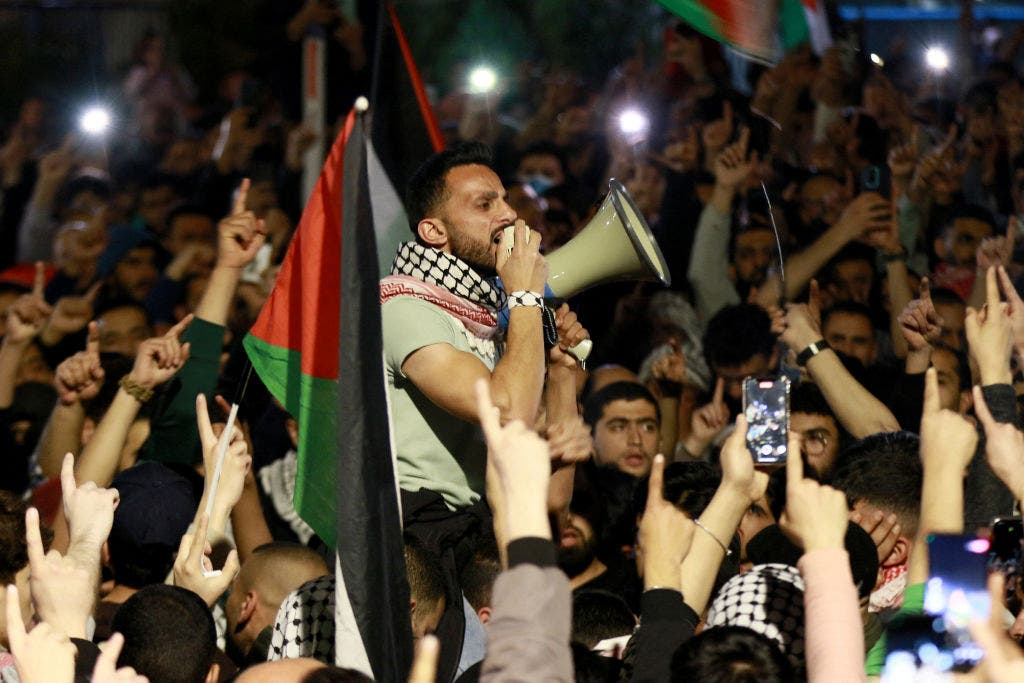The Hashemite Kingdom of Jordan, a key ally of the United States in the Middle East, is facing protests that some analysts believe could pose a serious threat to the regime. Recent demonstrations have seen declarations of support for the Hamas terrorist organization, which has been a vocal opponent of Israel’s actions in Gaza. Jordan’s government, led by King Abdullah II, has been accused of contributing to the unrest that could potentially dislodge the regime. The former Israeli ambassador to Jordan, Jacob Rosen, highlighted the delicate balance the country maintains, allowing some anti-Israel rhetoric while dispersing protests that may turn against the government.
Experts believe that the protests in Jordan are being tightly organized by Hamas, the Muslim Brotherhood network, and the Iranian regime. The Muslim Brotherhood has been classified as a terrorist organization by some countries in the region, including Saudi Arabia, the United Arab Emirates, and Egypt. Former Jordanian Minister of Information, Samih Al-Maaytah, accused Hamas leaders in Qatar of inciting violence in Jordan and inciting tribes and people to take to the streets against the government. The protests are seen as an attempt to destabilize the Hashemite Kingdom and weaken its leadership.
The vulnerability of Jordan, with its high unemployment rate and a significant population of Palestinian descent, makes it a target for external efforts to oust the king. The kingdom relies on international aid and has not made significant efforts to promote peace with Israel following the 1994 peace accord. There are concerns that Iran and the Muslim Brotherhood, through Hamas, are aiming to incite an intifada in Jordan and create chaos in the region. The ultimate goal may be to take out Jordan as a Western ally and spread unrest, leading to militias crossing borders.
President Biden met with King Abdullah in February to discuss the situation in Gaza, with the king expressing concern about a potential Israeli attack in Rafah. The U.S. has praised Jordan for its humanitarian aid to Gaza and emphasized the importance of stability in the region. Biden sees the establishment of a Palestinian state as crucial for peace with Israel’s Arab neighbors. However, many in Israel doubt the feasibility of a two-state solution after decades of failed attempts. Jordan has condemned the protests incited by Hamas, with the growing Iranian threat adding to the security concerns faced by the government.
The security situation in Jordan has raised alarm within the Palestinian Authority, which has expressed solidarity with the kingdom and rejected any attempts at destabilization. President Mahmoud Abbas reiterated support for King Abdullah II and rejected external interference in Jordanian affairs. The threat of pro-Iranian regime proxies in Iraq offering support to unrest in Jordan further complicates the situation. The Jordanian government has remained tight-lipped about recent events, anti-Israel rhetoric, and the designation of Hamas and the Muslim Brotherhood as terrorist organizations. The region remains on edge as tensions continue to simmer, posing a challenge to stability and peace in the Middle East.


